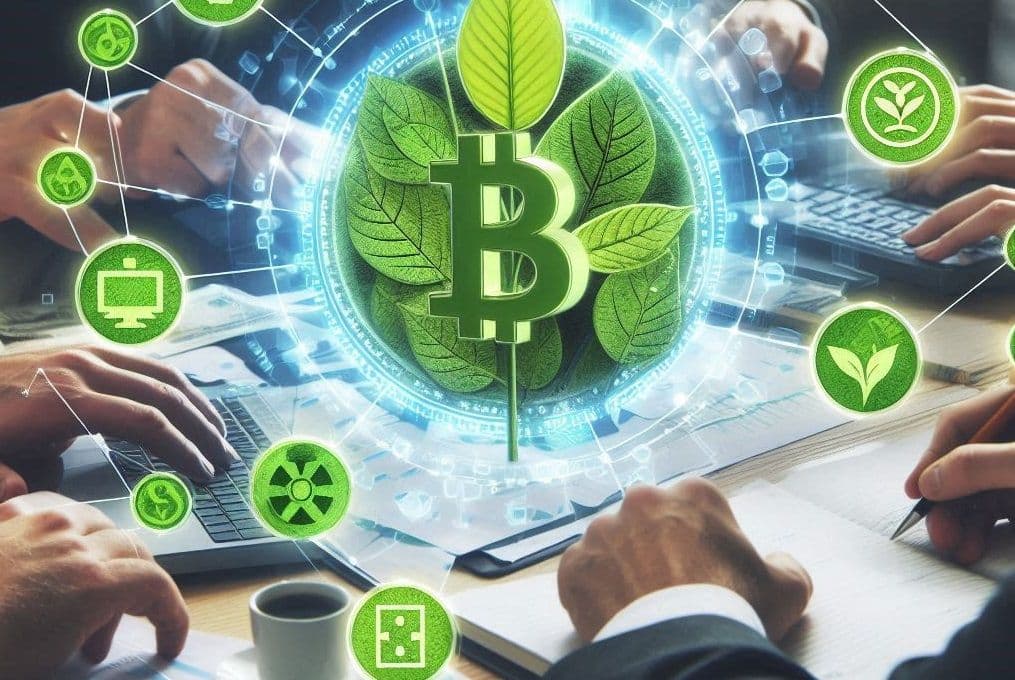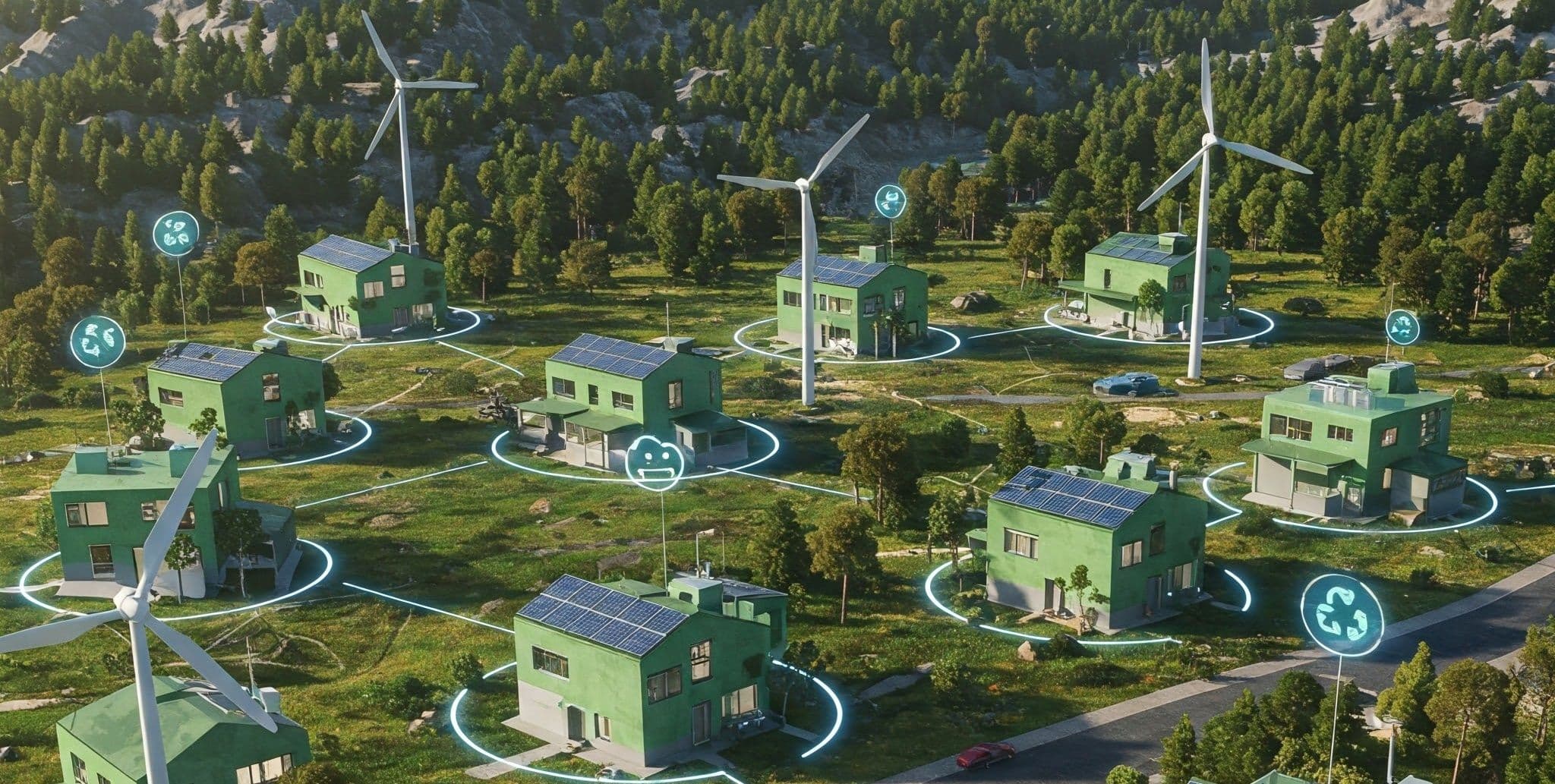
How Blockchain Could Help Save the Planet
From tracking carbon footprints to ensuring sustainable supply chains, blockchain is emerging as a powerful ally in the global fight against climate change.For years, the term "blockchain" has been closely linked to the world of cryptocurrencies, sparking both admiration and scepticism.
However, beyond its financial use, this technology has the potential to revolutionise critical sectors, including the environmental one.
At a pivotal moment for the planet, where sustainability has ceased to be an option and become an urgent necessity, blockchain is emerging as a promising tool to transform resource management, monitor emissions, and protect ecosystems.
The key lies in its ability to guarantee the traceability of every process, its unwavering transparency, and its resistance to fraud.
From tracking the carbon footprint of a product to ensuring the proper functioning of decentralised energy networks based on renewable sources, blockchain is ushering in a new era of ecological responsibility underpinned by verifiable data.
While it still faces technical, regulatory, and ethical challenges, its prominence in the fight against climate change is steadily growing.
Full Traceability: The New Green Standard
One of blockchain's main contributions to sustainability is its ability to guarantee full, real-time traceability of products, processes, and emissions.
Thanks to its decentralised and immutable structure, this technology allows for the recording of every stage of a supply chain—from the origin of a raw material to its arrival with the end consumer—with absolute transparency.
This represents a paradigm shift in industries traditionally marked by opacity or a lack of effective controls. In the food sector, for example, blockchain certifies that a coffee is truly organic, fair trade, and sourced from sustainable cultivation.
Companies like Nestlé and Carrefour have already implemented blockchain-based systems to offer consumers verifiable information about their products.
In the textile industry, the firm Organic Cotton Colours has adopted blockchain to certify that the cotton in its garments comes from 100% ecological and chemical-free cultivation.
Through QR codes, consumers can trace the exact origin of the raw material and understand its environmental impact.
"Blockchain is key to ensuring the integrity of environmental data. If we want to move towards a truly circular economy, we need technologies that support trust and prevent greenwashing", explains Clare Adelgren, Head of Sustainability at EY.
Carbon Markets: Precision, Trust, and Efficiency
The carbon credit market, vital for offsetting emissions and achieving climate goals, has historically faced problems of opacity, double counting, and a lack of trust in certificates.
This is where blockchain brings about a radical change. By recording each credit on a distributed and immutable network, this technology allows for the real-time verification of the origin, ownership, and destination of carbon offsets.
The automation of these processes reduces operating costs, minimises human error, and simplifies audits, making the systems more accessible and reliable.
Platforms such as Toucan Protocol or KlimaDAO are already using this technology to tokenise credits, transforming them into digital assets that can be traded more efficiently.
This not only strengthens the integrity of the system but also broadens the participation of smaller players in the carbon economy.
As governments intensify their climate commitments, blockchain could play a key role in the digitisation of emissions monitoring systems.
It is anticipated that, in the future, global platforms based on this technology will integrate artificial intelligence to analyse emission reduction patterns and optimise resource allocation.
Decentralised Energy: Clean Networks Powered by Data
The application of blockchain in the energy sector allows for the creation of decentralised networks that manage, distribute, and exchange renewable energy efficiently and automatically.
Through smart contracts, consumers can sell surplus solar energy generated in their homes, encouraging self-consumption and reducing dependence on fossil fuels.
An example is the Brooklyn Microgrid project in New York, which has demonstrated how blockchain facilitates a more inclusive and transparent energy transition.
The integration of blockchain with the Internet of Things (IoT) and artificial intelligence could further optimise energy management.
Smart sensors connected to the grid would record the exact consumption of each device, while AI algorithms would adjust energy distribution in real time to maximise efficiency.
Green Finance and Conservation with Digital Guarantees
In the field of environmental conservation, blockchain facilitates more transparent and efficient financing models.
Funds intended to protect forests, biodiversity, and marine ecosystems can be audited in real time, preventing diversions and ensuring that resources reach those who need them.
This technology allows for the issuance of tokens linked to environmental assets—such as hectares of protected rainforest or endangered species—ensuring that funding is traceable and verifiable.
In the Amazon, the Rainforest Foundation has developed a blockchain-based system to ensure transparency in the allocation of funds intended for the protection of indigenous territories.
By tokenising protected areas, it ensures that resources are used effectively to prevent deforestation.
The Future of Green Blockchain
The path of blockchain towards sustainability still faces significant challenges, from the energy consumption of the networks to the need for regulations that drive its global adoption.
However, its ability to generate trust and transparency in environmental processes makes it a key tool for the next decade.
If this technology manages to integrate with other innovations such as IoT, artificial intelligence, and new governance policies, its impact could radically transform the way we address climate change and build a more sustainable world.




